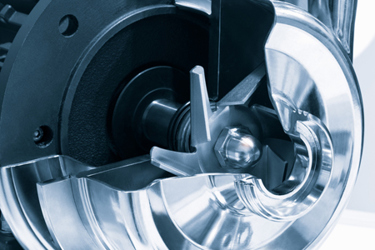Innovative Water Treatment Solutions For Municipal And Industrial Applications
By David Starr

Water pumps play an essential role in ensuring efficient water treatment for municipal and industrial systems. Their ability to manage both high-pressure requirements and complex water flow demands makes them indispensable. From maintaining irrigation systems in agriculture to supporting large-scale manufacturing plants, pumps are a backbone of sustainable water management.
A few years ago, I worked on a project in a small rural community that needed a reliable water system for irrigation. The existing setup couldn't handle seasonal demand, leading to inconsistent water supply. Introducing a robust water pump transformed their agricultural output, providing the necessary efficiency and reliability to sustain their crops.
The Mechanics Behind Efficient Water Flow
What sets modern water pumps apart is their innovative design and ability to optimize energy use. Pumps designed for municipal and industrial applications often feature advanced impellers and motors that reduce energy waste.
For example, centrifugal pumps are a popular choice for many applications. They use centrifugal force to move water efficiently, minimizing the wear-and-tear that occurs in less advanced models.
Another key innovation is the integration of durable materials that can handle various water conditions, including high sediment loads or corrosive environments.
Real-World Use Cases Of Water Pumps
In industrial settings, precision and reliability are paramount.
Consider a manufacturing plant that relies on steady water pressure for cooling machinery. Any disruption could lead to downtime, causing significant financial losses. Modern pumps, with their advanced flow control features, ensure uninterrupted operations.
Similarly, municipalities rely on pumps for wastewater management. During a recent urban development project, a reliable water pump system helped mitigate flooding in a low-lying area by redirecting excess water to treatment facilities. Without these pumps, the area would have faced severe waterlogging, damage to infrastructure, and disruption of daily life.
Why Material Selection Matters
Pumps operating in municipal and industrial settings often encounter challenging conditions. From abrasive particles in untreated water to chemical exposure, the materials used in pump construction make a significant difference.
High-grade stainless steel and composite materials are commonly used to enhance durability. These materials resist corrosion and abrasion, extending the pump's lifespan. In one instance, a facility upgraded their water system to include pumps with enhanced material resilience, reducing maintenance costs by 30% over three years.
Pump Maintenance And Efficiency Optimization
Regular maintenance is essential to maximize the lifespan and efficiency of water pumps. This involves routine inspections, cleaning of components, and timely replacement of worn parts.
Imagine running a large irrigation system. Ignoring minor wear-and-tear can quickly escalate into costly repairs or replacements. Instead, investing in preventive maintenance can ensure consistent performance and avoid unexpected downtime.
Choosing The Right Pump For Your Needs
Selecting the right pump requires understanding your specific water flow requirements. Key considerations include flow rate, pressure needs, and the type of water being managed.
For example, high-capacity pumps are ideal for municipal water systems, where large volumes need to be moved efficiently. Conversely, smaller centrifugal pumps might be more appropriate for localized industrial applications. Before making a decision, consult an expert who can recommend a pump tailored to your operational needs.
Innovative Features To Look For
Modern water pumps come equipped with a range of features designed to improve performance and ease of use.
- Variable speed drives (VSDs) allow users to adjust the pump's speed based on demand, optimizing energy consumption.
- Smart sensors monitor system performance and provide real-time data, enabling proactive maintenance.
These features not only enhance efficiency but also contribute to sustainability by reducing energy consumption. In a recent industrial project, installing pumps with VSDs cut energy costs by nearly 40% within the first year.
Environmental Benefits Of Advanced Water Pump Systems
Sustainability is a growing concern in water management. Efficient pump systems contribute significantly to reducing water and energy waste.
For instance, in arid regions, high-efficiency pumps ensure optimal water distribution for agriculture, minimizing wastage. By using pumps designed for specific applications, such as irrigation or wastewater management, communities can achieve better resource conservation.
These advancements underscore the role of technology in addressing global water challenges.
The Future Of Water Pump Technology
As technology evolves, so do the capabilities of water pumps. Emerging trends include pumps integrated with IoT (Internet of Things) technology, allowing remote monitoring and control.
Imagine receiving an alert on your phone if a pump experiences a performance issue. This level of automation not only simplifies management but also reduces downtime by addressing problems before they escalate.
Additionally, ongoing research into energy-efficient designs promises to further reduce operational costs, making advanced pump systems accessible to a broader audience.
Final Thoughts On Reliable Water Pump Systems
Whether for industrial or municipal applications, having a reliable water pump system is critical. By investing in the right technology, you can ensure efficient water management while minimizing costs and environmental impact.
Understanding your specific needs and maintaining your equipment are key to achieving long-term success. As innovations continue to emerge, water pumps will remain a cornerstone of sustainable water solutions.
